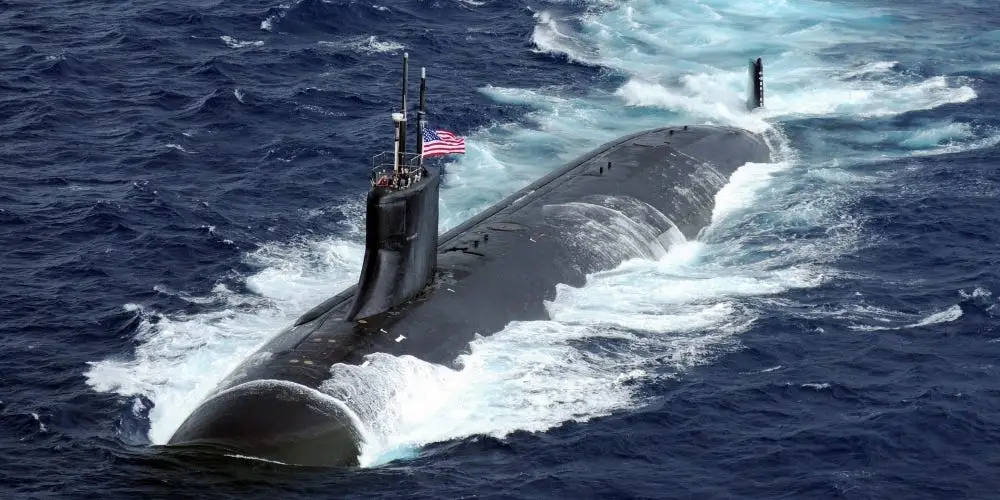BY: Pooya Mirzaei

PEJOURNAL – Nearly a month ago, the media reported that a US nuclear submarine had struck rocks under the waters of the South China Sea.
The U.S. Army Pacific Fleet said in a statement that one of its fastest nuclear and nuclear submarines crashed into a rock while navigating international waters in the Indo-Pacific region.
Since then, the Chinese government has demanded a clear and precise explanation from the United States in connection with the incident, but the US Navy has not yet provided any explanation on how the submarine behaved and continues to be secretive in this regard.
Here are some interesting points about this incident and the type of American reaction:
First; Given the submarine’s nuclear nature and its destructive environmental effects, the United States is primarily responsible for the environmental consequences of any accident for this submarine, and its secrecy, while increasing ambiguities about the alleged report of damage to the submarine’s nuclear tanks, reveals other dimensions of this point that the United States is unreliable and a threat to world security.
Second; Part of the mission of the International Atomic Energy Agency and its Director-General is to closely monitor the global nuclear threat. The silence of the Agency and Rafael Grossi himself in the face of this incident reveals the ambiguities in the independence and neutrality of the Agency.
The IAEA, that restricts countries’ access to peaceful energy by claiming world security, has to hold the United States accountable for its threat to the nuclear environment and even punishes this country with nuclear restrictions and sanctions for its inability to maintain nuclear structures.
Third; European countries that claim peace and security, including the environment, have so far remained silent in the face of the nuclear incident and have taken no action to hold the United States accountable.
Europeans’ rivalry with China cannot justify silence in the face of US environmental threats, and holding the United States accountable for this is not only China’s demand but also a global demand.
This behavior of the Europeans shows that their claim that they are concerned about nuclear Iran for world security is far from the truth and has a purely political nature.
Whereas; Europe’s stance against this threatening US behavior could be a step in order to move those countries towards independence and reviving multilateralism, and ending what Borrell, the EU’s foreign policy chief, calls Europe becoming an ineffective statement maker.
Fourth; The United Nations, as a key element of world security, has a responsibility to maintain global stability and security in the face of the US nuclear submarine incident, and, its nuclear presence in the South China Sea, which creates tensions in the region between China and the United States, as well as nuclear and arms rivalries.
The US military and nuclear presence in various parts of the world, from the Persian Gulf to the South China Sea, is not a security factor but detrimental to world security and trade.
The US secrecy and irresponsibility in this incident shows other dimensions of the US’s irresponsibility towards world peace and security, such as the $ 700 billion budget for upgrading its nuclear weapons, the deployment of 200 nuclear bombs in Europe, crisis building in Afghanistan, support for terrorism on the world stage, support for criminal regimes such as the Zionist regime and Saudi Arabia can be seen.